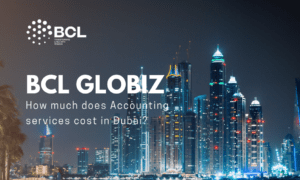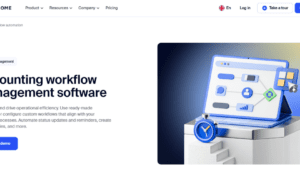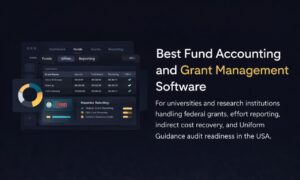Today, businesses are constantly seeking ways to streamline their operations, cut costs, and maintain compliance with ever-evolving regulations. Enter accounting and tax technology a game changer that is revolutionizing how businesses handle financial reporting and compliance. These tools aren’t just for big corporations; they’re transforming the way small businesses and startups manage their finances too.
This article explores how accounting and tax tech are automating financial processes, ensuring compliance, and making life easier for businesses and professionals alike.
The Rise of Accounting & Tax Technology
In the past, accounting was a tedious process that required endless paperwork, manual calculations, and hours of scrutiny. Tax filing was even more stressful miss one detail, and you could face hefty penalties. But with advancements in technology, businesses now have tools that make financial reporting and compliance faster, more accurate, and stress-free.
Accounting and tax tech leverage tools like cloud computing, artificial intelligence (AI), and machine learning (ML) to simplify complex financial tasks. These tools not only help you stay organized but also reduce the risk of human errors, ensuring your business remains compliant with tax regulations.
How Automation is Changing the Game
Faster Financial Reporting
Manual bookkeeping can take hours or even days. Automated accounting software like QuickBooks, Xero, and FreshBooks can process financial data in minutes. These tools pull data directly from your bank accounts, categorize expenses, and generate real-time financial reports.
For instance, instead of manually preparing a profit-and-loss statement at the end of the month, these tools can generate one instantly, giving you a clear picture of your financial health.
Error-Free Tax Filing
Tax compliance can be daunting, especially with frequent changes in tax laws. Automation ensures that your filings are accurate and up-to-date. Tools like TurboTax and Avalara automatically calculate taxes based on the latest regulations, reducing the chances of costly mistakes.
Seamless Integration
Modern accounting tools can integrate with other business software, such as payroll systems and e-commerce platforms. This ensures all your financial data is synced, giving you a unified view of your operations.
Key Benefits of Automating Financial Reporting and Compliance
Saves Time
By automating routine tasks like bookkeeping and tax calculations, businesses can focus on what really matters growth and innovation.
Cost-Effective
Hiring an accountant or tax consultant can be expensive, especially for small businesses. Automated tools offer a cost-effective alternative, providing professional-grade features at a fraction of the cost.
Improved Accuracy
Human errors in accounting can lead to significant financial losses. Automation ensures calculations are accurate, reducing the risk of mistakes.
Enhanced Compliance
Tax regulations vary by region and are constantly changing. Automated tools stay updated with the latest laws, ensuring your business remains compliant at all times.
Popular Tools in Accounting & Tax Tech
Here’s a look at some popular tools that are making waves in the industry:
- QuickBooks: Ideal for small to medium-sized businesses, QuickBooks offers features like invoicing, expense tracking, and financial reporting.
- Xero: A user-friendly tool that integrates with over 1,000 third-party apps, making it perfect for e-commerce businesses.
- FreshBooks: Known for its intuitive interface, FreshBooks simplifies invoicing and time tracking for freelancers and small businesses.
- TurboTax: A top choice for tax filing, TurboTax guides users through the process, ensuring accurate submissions.
- Avalara: Perfect for businesses with complex tax needs, Avalara automates tax calculations and filings across multiple jurisdictions.
Challenges of Adopting Accounting & Tax Technology
While the benefits are immense, it’s important to acknowledge the challenges:
Learning Curve
New tools can be intimidating, especially for those who are not tech-savvy. However, most platforms offer tutorials and customer support to help users get started.
Data Security
Since these tools handle sensitive financial information, ensuring data security is critical. Businesses must choose reputable platforms with robust security measures.
Initial Costs
Although these tools save money in the long run, the initial subscription or setup costs can be a hurdle for some businesses.
Future of Accounting & Tax Tech
The future of accounting and tax technology looks promising. Here’s what to expect:
- AI-Powered Insights: AI will go beyond automating tasks and provide actionable insights to improve financial decision-making.
- Blockchain Integration: Blockchain can enhance transparency and security in financial transactions.
- Global Compliance Tools: With businesses operating in multiple countries, tools that handle global tax compliance will become more prevalent.
- Voice and Chat Interfaces: Imagine asking a virtual assistant, “What’s my profit margin this month?” and getting an instant response.
Conclusion
Accounting and tax technology is no longer a luxury it’s a necessity for businesses looking to stay competitive. By automating financial reporting and compliance, these tools save time, reduce costs, and ensure accuracy.
Whether you’re a small business owner or an aspiring entrepreneur, investing in the right tools today can set you up for long-term success. The key is to stay informed, embrace innovation, and leverage technology to your advantage.
In the end, accounting and tax tech is about more than just numbers it’s about creating a smarter, more efficient future for businesses of all sizes.



































